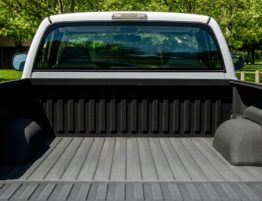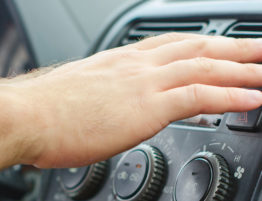
Have you noticed a bit of shrill squeal coming from your car as you press down on your brake pedal? Or have you noticed your vehicle isn’t braking quite as quickly as it once did? Don’t end up like this guy! You typically need to change your brake pads to fix that awful noise or to stop on a dime like you used to!
Ideally you wouldn’t let your brake pads get so worn down they need to scream for you to remember them!
But it can happen when you’re not sure what maintenance is required for your brake pads. And you don’t want to let your brakes get bad since they’re a major safety feature of your vehicle. You could run into MAJOR problems if you let them go bad, and you definitely don’t want them to fail you.
Today we’re sharing the most important maintenance tips for your brake pads.
You should check your brake fluid often. It’s important for the fluid to be clean and at the proper amount. When you take your vehicle in for a routine oil change, always ask the mechanic to check your vehicle’s fluid levels. Be sure to specify that you want your brake fluid checked as well. Sometimes they do it on their own, but it’s best to ask for exactly what you want!
If it’s required, change your brake fluid. When you check it on your own, make sure the brake fluid isn’t milky colored. Milky-looking brake fluid indicates water or condensation has compromised the fluid. You MUST change it if it’s looking off. Leaving it alone could destroy your master cylinder (a part of the brake system) and ruin your wheel cylinders.
When you’re changing the brake fluid, always bleed your brake lines first. This process will usually require more than one person, or is something you can have done by a mechanic. One person should pump the brakes while another watches the bleeder valve. It should be closed when the brake fluid starts to flow into it. Bleeding the brakes removes any air from them.
According to most manufacturers, brake pads should be replaced every 50,000 miles. For an exact number for your specific vehicle, consult your owner’s manual. For some vehicles a replacement may be required every 25,000 miles and others can last up to 70,000 miles. While 50,000 miles is the average, check your owner’s manual for an exact number.
How often you change your brake pads also depends on how you drive your vehicle, where you drive it, and how often you drive it. You should consider all of those factors when determining how often you feel it’s best to have your brake pads replaced. Typically, if you live in a city where you stop more often on your commute, you will need to replace them more often. If you mostly drive on flat, country roads you can probably go longer between changing the brake pads.
- Driving with a Cracked Windshield is Dangerous! - November 28, 2019
- Common Causes of Windshield Cracks: What You Need to Know - November 20, 2019
- The Best Road Trip Snacks for Kids - November 20, 2019








